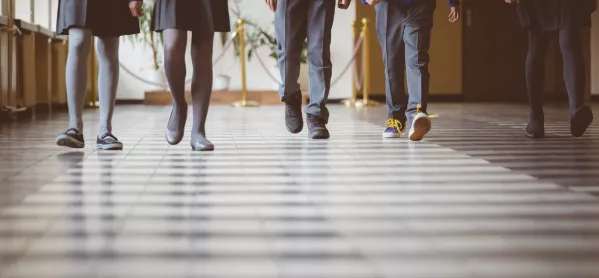Charity campaigners have said “elitist” and expensive school uniforms are increasing holiday poverty for low-income families.
At a hearing of the House of Commons Work and Pensions Select Committee to investigate school holiday poverty, Ema Wilkes, the director of Neo Community, a Wirral-based charity, said school uniforms were becoming a “ridiculous expense”.
Related: Elaborate uniforms are pricing out poor pupils, schools told
News: Parents ‘spend £244 per child for new school year’
Child poverty: Schools to be offered training on poverty impact
As a low-income parent, Ms Wilkes said she had recently spent £350 on three primary school uniforms.
Vulnerable families were put under pressure by expensive uniforms, she said.
“I’ve got eight-year-olds that know when mum’s getting paid,” she said. They asked for extra safety pins for broken skirts until their parents could afford new uniforms.
“It’s not fair,” Ms Wilkes said.
She argued that school uniform costs should be capped. If schools only purchased uniforms from one provider, they should buy in bulk so that they bore the brunt of the cost, she said.
“Put the pressure on the schools, rather than the parents, and their children,” she said.
Ms Wilkes said struggling to afford new uniform was part of the “stigma of poverty.” While she said she would often buy hand-me-downs for her children, she stressed the importance of a brand-new uniform for a pupil transitioning to Year 7.
“When you’re starting a new school, you want to walk in with your head held high,” Ms Wilkes said.
Other low-income parents, as well as representatives from Save The Children, Child Poverty Action Group and the Trussell Trust took part in the session.
Abby Jitendra, policy and research manager at the Trussell Trust, said food banks were now helping struggling families with uniform as well as groceries.
Sophie Howes, a policy and research officer at the Child Poverty Action Group, said that extended schools would help ease the burden on parents during holidays.
If provision was “just about food” it could stigmatise disadvantaged children, she said




